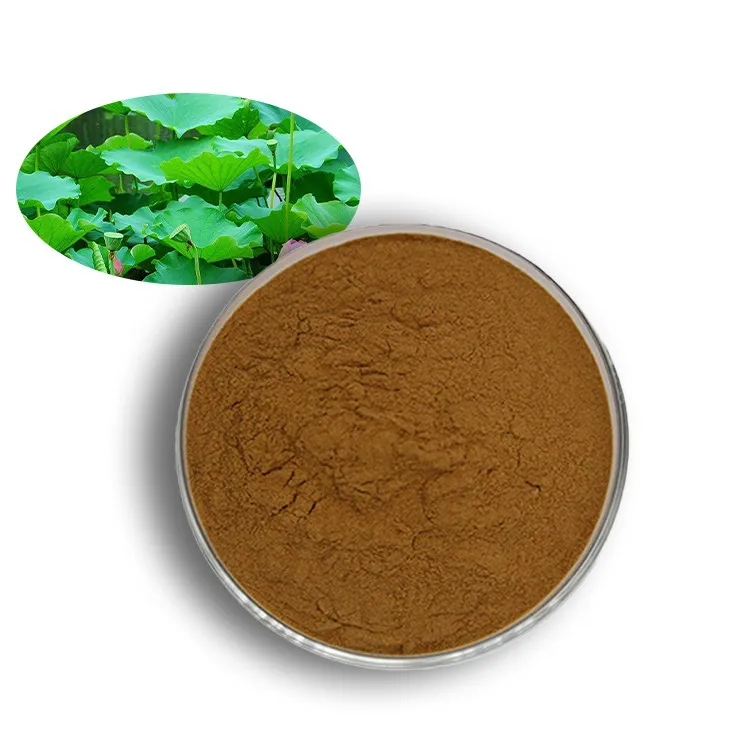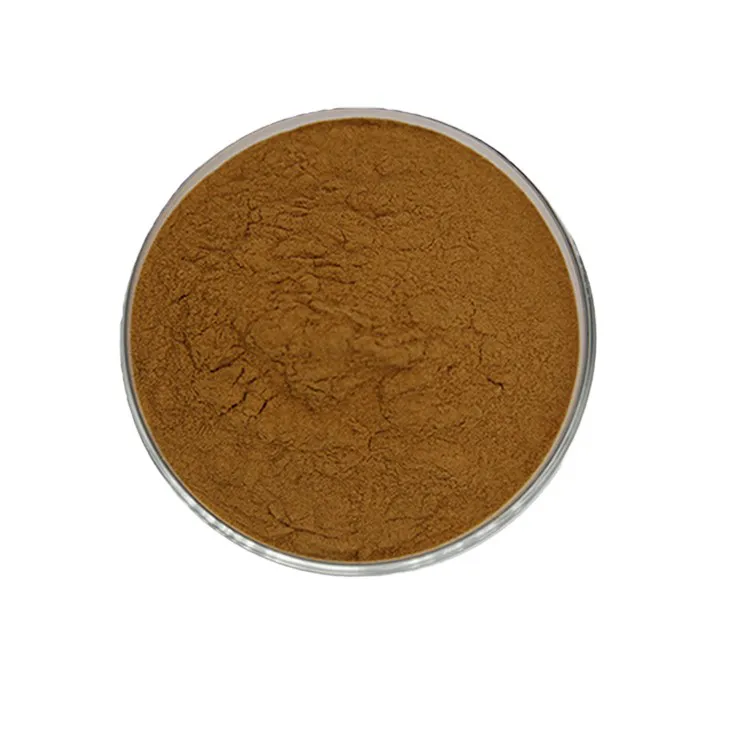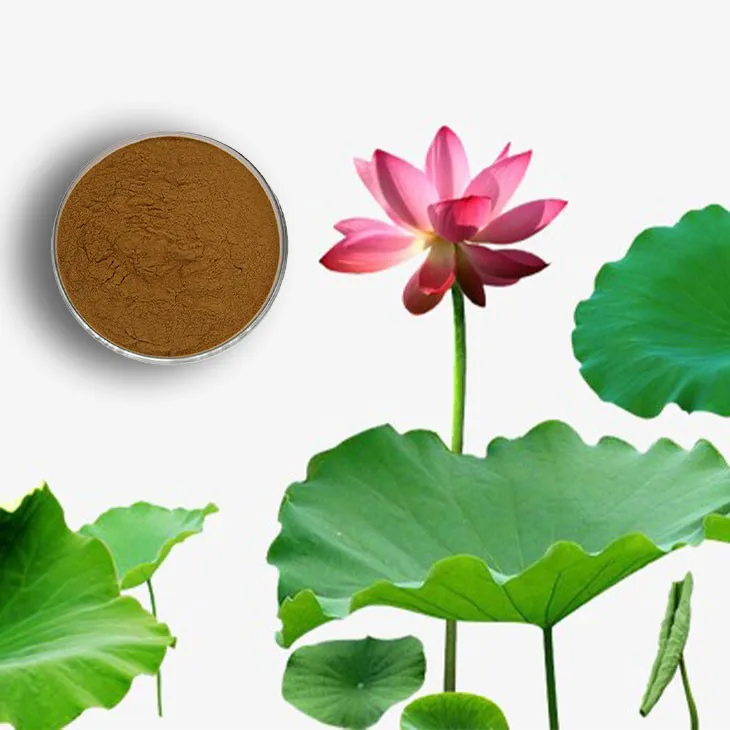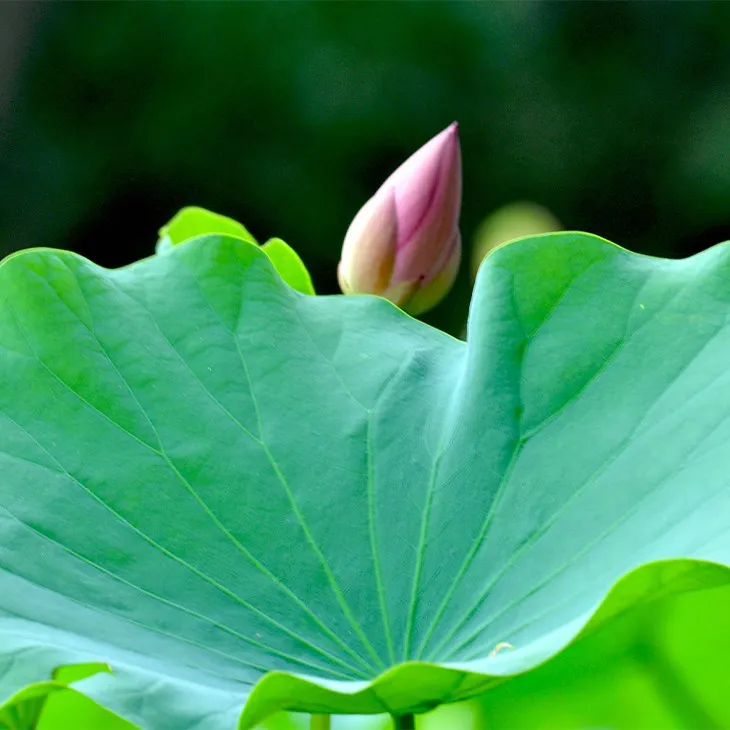- 0086-571-85302990
- sales@greenskybio.com
Application of Lotus Leaf Extract in Skin Care.
2024-11-13

Introduction
In the modern world of skin care, consumers are increasingly seeking natural and effective ingredients. Lotus leaf extract has emerged as a promising component in this regard. Derived from the leaves of the lotus plant, which has long been revered in various cultures for its beauty and purity, this extract offers a plethora of benefits for the skin.

Bioactive Compounds in Lotus leaf extract
The effectiveness of Lotus leaf extract in skin care can be attributed to its rich composition of bioactive compounds.
Flavonoids
Flavonoids are a major group of compounds found in lotus leaf extract. These are known for their antioxidant properties. They help in neutralizing free radicals in the skin, which are often the cause of premature aging. Free radicals can damage the skin cells, leading to wrinkles, fine lines, and dull skin. By scavenging these free radicals, flavonoids in the lotus leaf extract contribute to maintaining a youthful and healthy complexion.
Alkaloids
Another important class of compounds present in lotus leaf extract is alkaloids. Alkaloids have been shown to possess anti - inflammatory properties. Skin inflammation can be caused by various factors such as environmental pollutants, allergens, and certain skin conditions. Inflammation can lead to redness, swelling, and discomfort. The alkaloids in the lotus leaf extract can help soothe the skin, reducing these symptoms of inflammation.

Enhancing Skin Hydration
One of the key benefits of lotus leaf extract in skin care is its ability to enhance skin hydration.
The skin's moisture barrier plays a crucial role in keeping the skin hydrated. Lotus leaf extract helps in maintaining this moisture barrier. It does so by interacting with the skin cells and promoting the production of ceramides, which are essential lipids in the skin. Ceramides help to seal in moisture, preventing water loss from the skin.
Moreover, lotus leaf extract can also increase the water - holding capacity of the skin. This means that the skin is able to retain more moisture, resulting in a plump and hydrated appearance. A well - hydrated skin is less likely to develop dry patches, flakiness, and itchiness.

Antibacterial Properties
Lotus leaf extract has significant antibacterial properties, which are highly beneficial for the skin.
The skin is constantly exposed to various bacteria, some of which can cause infections. These infections can range from mild acne to more severe skin diseases. The antibacterial properties of lotus leaf extract can help in preventing the growth and spread of these harmful bacteria on the skin.
For example, it can be effective against Propionibacterium acnes, which is a major culprit in acne formation. By inhibiting the growth of this bacterium, lotus leaf extract can help in reducing the occurrence of acne breakouts and promoting clearer skin.

Skin Brightening
Another remarkable benefit of lotus leaf extract is its contribution to skin brightening.
One of the ways it achieves this is by inhibiting the production of melanin. Melanin is the pigment responsible for skin color, and excessive production of melanin can lead to dark spots, hyperpigmentation, and an uneven skin tone. By reducing melanin production, lotus leaf extract can help in lightening these dark areas and creating a more even - toned complexion.
Furthermore, the antioxidant properties of lotus leaf extract also play a role in skin brightening. Antioxidants help in improving the overall health of the skin cells, which can result in a more radiant and glowing complexion.
Forms of Lotus Leaf Extract in Skin Care Products
Lotus leaf extract can be found in various forms in skin care products.
- Serums: Lotus leaf extract - based serums are popular as they are lightweight and can penetrate deep into the skin. They are often used for targeted treatment of specific skin concerns such as hydration, brightening, or anti - aging.
- Moisturizers: Many moisturizers now incorporate lotus leaf extract. This addition helps in providing hydration as well as the other benefits of the extract, such as antibacterial protection and skin brightening, while also moisturizing the skin.
- Face Masks: Face masks containing lotus leaf extract are also common. These masks can be used for a more intensive treatment of the skin. They can provide a concentrated dose of the extract's benefits, leaving the skin refreshed, hydrated, and glowing.
How to Choose Skin Care Products with Lotus Leaf Extract
When choosing skin care products with lotus leaf extract, there are several factors to consider.
- Quality of the Extract: Ensure that the product uses a high - quality lotus leaf extract. Look for products from reputable brands that are known for their quality control and use of pure and effective ingredients.
- Concentration of the Extract: Check the concentration of the lotus leaf extract in the product. A higher concentration may offer more pronounced benefits, but it is also important to ensure that it is within a safe and effective range.
- Compatibility with Your Skin Type: Different skin types may react differently to products containing lotus leaf extract. For example, if you have oily skin, you may want to choose a lighter - textured product such as a serum. If you have dry skin, a more moisturizing product like a rich cream with lotus leaf extract may be more suitable.
Research and Future Prospects
Although lotus leaf extract has shown great potential in skin care, more research is still needed.
Current research has mainly focused on its basic properties and benefits. Future studies could explore more in - depth mechanisms of how the extract interacts with the skin at a molecular level. This could lead to the development of more targeted and effective skin care products.
Moreover, research could also be carried out to investigate the long - term effects of using lotus leaf extract in skin care. This would provide more comprehensive information for consumers and the skin care industry.
Conclusion
In conclusion, lotus leaf extract is a valuable ingredient in skin care. Its bioactive compounds offer multiple benefits including enhancing skin hydration, having antibacterial properties, and contributing to skin brightening. With its presence in various skin care products such as serums, moisturizers, and face masks, consumers have the opportunity to incorporate this natural extract into their skin care routines. However, it is important to choose products carefully, considering factors such as the quality and concentration of the extract and compatibility with one's skin type. As research continues, we can expect to see even more innovative uses of lotus leaf extract in the field of skin care in the future.
FAQ:
Q1: How does lotus leaf extract enhance skin hydration?
Lotus leaf extract contains certain substances that can help maintain the skin's moisture barrier. By strengthening this barrier, it reduces water loss from the skin, thus enhancing skin hydration.
Q2: What are the main antibacterial components in lotus leaf extract?
There are several bioactive compounds in lotus leaf extract that contribute to its antibacterial properties. For example, some alkaloids and flavonoids present in it have been shown to have antibacterial effects, though the exact mechanisms are still under further study.
Q3: Can lotus leaf extract be used for all skin types in terms of skin brightening?
Generally, lotus leaf extract can be used for most skin types for skin brightening. However, individuals with extremely sensitive skin may need to do a patch test first. This is because, although it is a natural extract, there could still be potential for mild irritation in very sensitive individuals.
Q4: How long does it take to see the effects of lotus leaf extract on skin?
The time to see the effects of lotus leaf extract on the skin can vary. For skin hydration, some people may notice a difference within a few days to a week, especially if their skin was previously dehydrated. For skin brightening and antibacterial effects, it may take a couple of weeks to a few months of consistent use, as these processes are more complex and depend on various factors such as skin cell turnover rate and the overall health of the skin.
Q5: Are there any side effects of using lotus leaf extract in skin care?
For the majority of people, using lotus leaf extract in skin care is safe. However, as mentioned before, very sensitive skin types may experience mild irritation. Also, if the extract is not properly sourced or processed, there could be potential contaminants that might cause adverse reactions. But when using high - quality, properly formulated products containing lotus leaf extract, side effects are relatively rare.
Related literature
- The Bioactive Compounds of Lotus Leaf and Their Potential in Skin Care"
- "Antibacterial and Skin - Nourishing Properties of Lotus Leaf Extract"
- "Lotus Leaf Extract: A Natural Approach to Skin Hydration and Brightening"
- ▶ Hesperidin
- ▶ citrus bioflavonoids
- ▶ plant extract
- ▶ lycopene
- ▶ Diosmin
- ▶ Grape seed extract
- ▶ Sea buckthorn Juice Powder
- ▶ Beetroot powder
- ▶ Hops Extract
- ▶ Artichoke Extract
- ▶ Reishi mushroom extract
- ▶ Astaxanthin
- ▶ Green Tea Extract
- ▶ Curcumin Extract
- ▶ Horse Chestnut Extract
- ▶ Other Problems
- ▶ Boswellia Serrata Extract
- ▶ Resveratrol Extract
- ▶ Marigold Extract
- ▶ Grape Leaf Extract
- ▶ blog3
-
Cranberry Plants and Skin - care Products.
2024-11-13
-
White Peony Extract
2024-11-13
-
Green Tea Extract
2024-11-13
-
Hesperidin
2024-11-13
-
Clove Powder
2024-11-13
-
Pueraria Lobata Extract
2024-11-13
-
Fig Extract
2024-11-13
-
Dandelion Root Extract
2024-11-13
-
Eucommia Ulmoides Extract
2024-11-13
-
Sophora Flavescens Root Extract
2024-11-13
-
Curcuma Longa Extract/Turmeric extract
2024-11-13





















